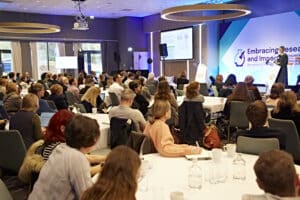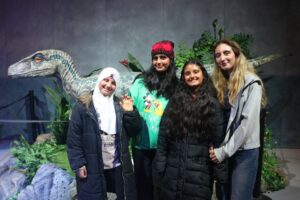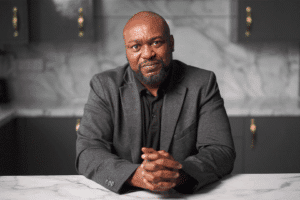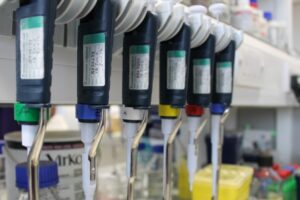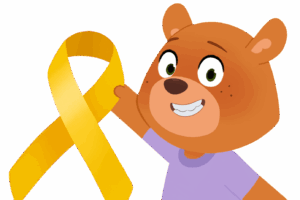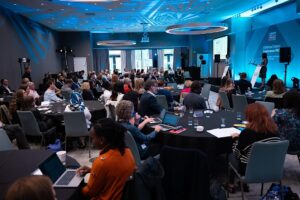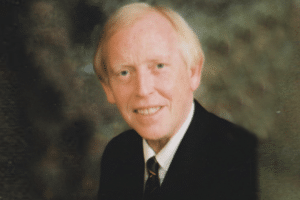INSTINCT research to treat brain cancer in children
New study finds kinder, more targeted approach to treating aggressive brain cancer in children.
8 October 2024
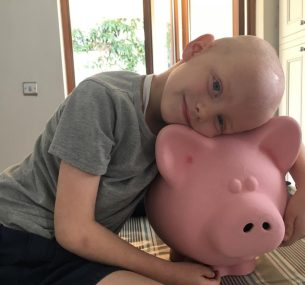
– Researchers have identified a critical variation in medulloblastomas, a form of brain cancer in children.
– Their discovery of an aggressive genetic group which is near incurable using current therapies will lead to easier diagnosis of this form of tumour, which urgently requires new treatment approaches.
– Their findings pave the way for more effective targeted approaches to treating these tumours, aimed at better prognosis, minimised long-term side effects and improved quality of life.
– John Rainsbury, father of Will, who died at the age of six from Group 3 medulloblastoma, said: “As a family we are excited by the possibilities that this discovery provides, and hope this new understanding can develop into meaningful treatments for other children facing what Will went through.”
– National childhood cancer charity Children with Cancer UK, together with Cancer Research UK, The Brain Tumour Charity, Great Ormond Street Hospital Charity, Blue Skye Thinking and Little Hero funded the two-phase £5 million INSTINCT research programme led by Newcastle University. The papers will be published on Tuesday, October 8.
Vital research findings pointing to improved treatment for children with Group 3 medulloblastoma brain tumours have been revealed in two major studies published in the journal NeuroOncology today (Tuesday 8 October).
Medulloblastoma is among the most common malignant brain tumours of childhood cancer and is responsible for around 5 to 10% of childhood cancer deaths.
Now, findings from the two-phase £5 million INSTINCT studies could form the foundation of more targeted treatments for many children, leading to improved survival, less severe long-term side effects and improved quality of life.
Led by Professor Steve Clifford, Director of Newcastle University Centre for Cancer, the INSTINCT research programme set out to identify key genetic defects and find effective targeted approaches to treating Group 3 medulloblastoma.
Group 3 medulloblastomas are a group of tumours that occur primarily in young children and are effectively incurable, contributing significantly to overall childhood cancer death rates. This cancer is driven by the presence of a gene called MYC which triggers rapid disease growth and often results in treatment failure.
By bringing together the largest cohort of MYC amplified tumours ever studied – drawn from over 1,600 cases – the study showed critical variation in the clinical outcomes within this group.
They were able to identify for the first time specific groups of patients who are currently near incurable and urgently require new approaches.
The two studies, which began in 2015, have provided critical evidence to help guide diagnosis and consider appropriate treatment dependent on the genetic make-up of the tumour.
The researchers also identified the potential for a new approach to treating the disease, using drugs that target the effect of the MYC gene on tumour growth.
Professor Clifford explains:
Medulloblastomas with MYC gene amplifications are one of the biggest challenges in paediatric oncology. In our latest studies, we have identified an important group of these tumours which are essentially incurable using current therapies, and how to recognise them diagnostically.
New therapies are urgently required to treat these tumours, but there has been a lag in their development. In our second new paper, we report our discovery that MYC tumours are dependent on a critical metabolic pathway – the serine/glycine synthesis pathway – for their growth and development, and that we can target this pathway using PHGDH inhibitor drugs in experimental models to slow tumour growth. Together, these studies provide the essential diagnostic characteristics that can immediately be used to identify this critical tumour group in the clinic, as well as an important targetable mechanism for the development of new therapies aimed at improving their outcomes.
Dr Ed Schwalbe, Associate Professor in Bioinformatics and Biostatistics at Northumbria University, led the first part of the INSTINCT study, which identified a group of patients with a particularly poor prognosis, as well as other patient groups whose disease is curable using current treatments. He said:
Understanding that children with MYC medulloblastomas have different outcomes helps us to select the best treatments and paves the way for new approaches to treat this devastating disease.
Dr Magretta Adiamah, a developing postdoctoral researcher, led the second part of the study exploring targeted metabolic therapies for MYC medulloblastoma during her PhD studentship at Newcastle University. She said:
Our study opens the possibility of targeting MYC medulloblastoma through a metabolic vulnerability created by MYC itself. It is promising that we can selectively target MYC medulloblastoma by understanding what it takes to grow so aggressively.
The studies were funded by Children with Cancer UK, Cancer Research UK, The Brain Tumour Charity, Great Ormond Street Hospital Charity (GOSH Charity), Blue Skye Thinking and Little Hero.
Both Blue Skye Thinking and Little Hero were formed by families in the memory of their lost sons who passed away from medulloblastoma. John Rainsbury, Trustee of Little Hero and Dad to Will (pictured above hugging his toy) who died of Group 3 medulloblastoma at six years old, said:
As a family we are excited by the possibilities that this discovery provides and hope this new understanding can develop into meaningful treatments for other children facing what Will went through. Whilst diagnostics have progressed, surprisingly the actual treatment for medulloblastoma has changed little in 30 years, with the prognosis for high risk versions remaining stubbornly poor. It is essential that we develop novel approaches to target high-risk disease far more effectively and give kids like Will a chance for the future.
Children with Cancer UK’s Head of Research, Dr Sultana Choudhry said:
We have a long-standing commitment to fund research to accelerate scientific discoveries to clinical translation of new treatments and better outcomes for children with cancer. This study represents a significant step towards more effective and targeted treatments for one of the most challenging forms of paediatric brain cancer. Through funding vital research such as the INSTINCT programmes we continue to improve outcomes for children with cancer and work towards achieving our vision of a world where every child and young person survives a cancer diagnosis.
The papers from the INSTINCT programme (Schwalbe et al and Adiamah et al) can be read online.
About Newcastle University:
Newcastle University, UK, is a thriving international community of more than 28,000 students from over 130 countries worldwide.
As a member of the Russell Group of research-intensive universities in the UK, Newcastle has a world-class reputation for research excellence in the fields of medicine, science and engineering, social sciences and the humanities.
Its academics are sharply focused on responding to the major challenges facing society today. Research and teaching are world-leading in areas as diverse as health, culture, technology and the environment.
Newcastle is committed to providing students with excellent, research-led teaching delivered by dedicated and passionate teachers.
Newcastle University is ranked 129th in the QS World Ranking 2025 and joint 168th in the Times Higher Education World University Ranking 2024.
Newcastle University is Top 100 in the world for sustainable development in the Times Higher Education Impact Rankings 2024.
About Little Hero:
Little Hero is a registered charity set up in memory of Will, an amazing six-year old boy who died following a nine month battle with Group 3 medulloblastoma. Despite the devastating impact this had on his family, they were inspired by Will and his amazing fight and wanted to continue his effort to support other families. They fund critically needed research into new treatments for childhood brain tumours and support other families facing a childhood cancer diagnosis.
For more information about Little Hero, visit www.littlehero.org.uk
About Blue Skye Thinking:
Blue Skye Thinking is a registered charity run in memory of Skye Hall, who died (age 5 years) from side effects of treatment for a Medulloblastoma. The Charity strives to give all children diagnosed with a brain tumour a better chance of survival and improved quality of life during and post treatment. Run by volunteers, money donated goes directly to the forefront of key research and wellbeing projects.
For more information about Blue Skye Thinking, visit www.blueskyethinking.org
About Cancer Research UK:
Cancer Research UK is the world’s leading cancer charity dedicated to saving lives through research, influence and information.
Cancer Research UK’s pioneering work into the prevention, diagnosis and treatment of cancer has helped save millions of lives.
Cancer Research UK has been at the heart of the progress that has already seen survival in the UK double in the last 50 years.
Today, 2 in 4 people survive their cancer for at least 10 years. Cancer Research UK wants to accelerate progress and see 3 in 4 people surviving their cancer by 2034.
Cancer Research UK supports research into the prevention and treatment of cancer through the work of over 4,000 scientists, doctors and nurses.
Together with its partners and supporters, Cancer Research UK is working towards a world where people can live longer, better lives, free from the fear of cancer.
For further information about Cancer Research UK, visit www.cancerresearchuk.org
About The Brain Tumour Charity:
The Brain Tumour Charity is the UK’s largest dedicated brain tumour charity, committed to fighting brain tumours on all fronts.
It funds pioneering research to increase survival and improve treatment options and raises awareness of the symptoms and effects of brain tumours to bring about earlier diagnosis. The Charity also provides support for everyone affected by a diagnosis so that they can live as full a life as possible, with the best quality of life.
Registered Charity in England and Wales (1150054) and Scotland (SC045081).
Find out more at: thebraintumourcharity.org
Members of the Association of Medical Research Charities, The Information Standard, The Helplines Partnership and the Fundraising Standards Board.
About Great Ormond Street Hospital Charity:
Great Ormond Street Hospital Charity (GOSH Charity) stops at nothing to help give seriously ill children childhoods that are fuller, funner and longer. For the hundreds of children from all over the UK who are treated by Great Ormond Street Hospital (GOSH) every day, for children with rare or complex illnesses everywhere, for this generation and all those to come.
GOSH has been transforming the lives of seriously ill children since opening its doors in 1852 and has always depended on charitable support. GOSH Charity funds groundbreaking research into children’s health, cutting-edge medical equipment, child-centred medical facilities and the support services children and families going through the toughest journey of their lives urgently need. But there is so much more we need to do.
Together with our supporters, we can give seriously ill children the best chance, and the best childhoods, possible. Because we believe no childhood should be lost to serious illness.
Join us, visit gosh.org today.
About Children with Cancer UK:
Children with Cancer UK is the leading children’s cancer charity in the UK. Our vision is a world where every child and young person survives their cancer diagnosis. Our mission is to improve survival rates and the quality of survival in young patients, and to find ways to prevent cancer in the future. We are dedicated to raising and investing funds into vital research that helps us understand childhood cancers and improves treatments. We support families as they navigate treatment and life beyond cancer. What began as a small memorial charity in 1988, has evolved into a leading childhood cancer charity raising more than £300 million and investing in over 300 pioneering research projects.
Press enquiries:
For all press enquiries, please email [email protected] or call 0800 222 9000 and ask for the media team.
Other stories
We have lots of information to help you learn more about childhood cancer. From specific cancer types, to treatments and causes.
